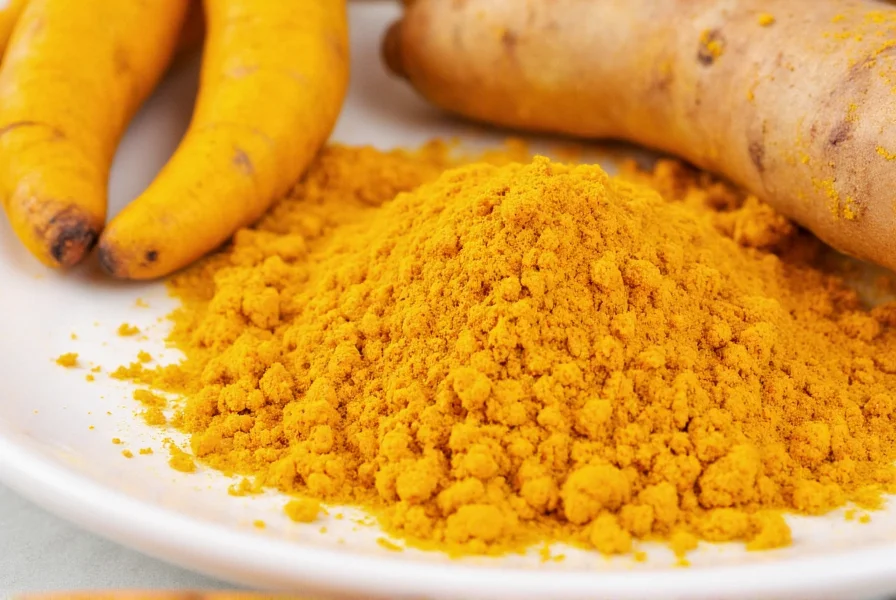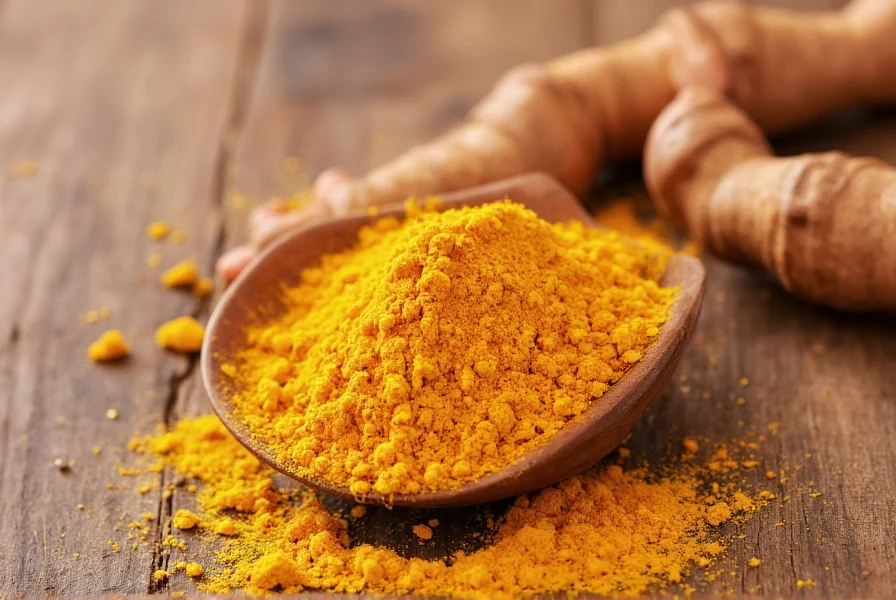When exploring natural approaches to managing inflammation, many people wonder: is turmeric good for inflammation? The answer lies in understanding both the promising research and important limitations of this golden spice.
The Science Behind Turmeric's Anti-Inflammatory Properties
Turmeric contains curcuminoids, with curcumin being the most studied compound responsible for its yellow color and potential health benefits. Curcumin works by targeting multiple inflammatory pathways in the body, including:
- Inhibiting NF-kB, a molecule that triggers inflammation-related genes
- Reducing levels of inflammatory enzymes like COX-2 and LOX
- Decreasing production of inflammatory cytokines such as TNF-α and IL-6
- Modulating immune cell activity involved in inflammatory responses
Unlike pharmaceutical anti-inflammatory drugs that typically target just one pathway, curcumin's multi-target approach may explain why does turmeric reduce inflammation naturally for many people. This broad mechanism of action makes it particularly interesting for researchers studying chronic inflammatory conditions.

Clinical Evidence: What Research Shows
Multiple studies have investigated turmeric's effectiveness for various inflammatory conditions. A comprehensive review published in Journal of Medicinal Food analyzed 29 randomized clinical trials and found curcumin demonstrated significant anti-inflammatory effects across multiple conditions.
| Condition Studied | Study Duration | Curcumin Dosage | Reported Improvement |
|---|---|---|---|
| Osteoarthritis | 8-12 weeks | 500-1500mg/day | 40-60% pain reduction |
| Rheumatoid Arthritis | 8 weeks | 500mg twice daily | Comparable to diclofenac |
| Metabolic Syndrome | 8 weeks | 1000mg/day | Reduced inflammatory markers |
| Post-Surgical Inflammation | 3-5 days | 400mg/day | Faster recovery time |
One notable study in the Journal of Alternative and Complementary Medicine found that 1,000mg of curcumin daily was as effective as 800mg of ibuprofen for reducing pain and improving function in people with knee osteoarthritis. However, researchers emphasized that how much turmeric should I take for inflammation depends on the formulation and individual health factors.
Overcoming Bioavailability Challenges
One major limitation in scientific studies on turmeric and inflammation is curcumin's poor bioavailability. When consumed alone, curcumin has:
- Low absorption rate in the digestive system
- Rapid metabolism and elimination
- Insolubility in water
This explains why many early studies showed limited effects. Modern formulations address these issues through:
- Piperine combination: Black pepper extract (piperine) increases absorption by up to 2,000%
- Liposomal delivery: Encapsulating curcumin in fat molecules improves absorption
- Phospholipid complexes: Binding to phospholipids enhances bioavailability
- Nanoparticle formulations: Reducing particle size for better absorption
When evaluating best turmeric supplement for inflammation, look for products specifying their bioavailability enhancement method and containing at least 500mg of standardized curcumin extract per serving.
Practical Usage Guidelines
For those considering turmeric for inflammation management, these evidence-based recommendations can maximize benefits:
- Dosage: 500-1,500mg of curcumin daily, divided into 2-3 doses
- With food: Always consume with healthy fats (avocado, olive oil, nuts) to enhance absorption
- Timing: Take with meals to reduce potential stomach upset
- Duration: Allow 4-8 weeks to assess effectiveness
- Quality: Choose third-party tested supplements with clear curcumin content
For culinary use, adding 1-2 teaspoons of turmeric to dishes with black pepper and healthy fats provides approximately 100-200mg of curcumin. While this how to use turmeric for inflammation naturally approach won't match supplement potency, it contributes to overall anti-inflammatory dietary patterns.
Important Limitations and Considerations
Despite promising research, turmeric has important limitations that affect is turmeric effective for chronic inflammation:
- Not a replacement for medical treatment: Severe inflammatory conditions require professional medical care
- Drug interactions: May interact with blood thinners, diabetes medications, and chemotherapy drugs
- Gastrointestinal effects: High doses may cause stomach upset in some individuals
- Variable quality: Supplement potency varies significantly between brands
- Delayed effects: Unlike NSAIDs, benefits develop gradually over weeks
People with gallbladder issues should consult a healthcare provider before using turmeric supplements, as it may stimulate bile production. Those scheduled for surgery should discontinue turmeric supplements at least two weeks beforehand due to potential blood-thinning effects.
Turmeric vs. Conventional Anti-Inflammatory Treatments
When comparing turmeric vs NSAIDs for inflammation, important differences emerge:
- Onset of action: NSAIDs work within hours; turmeric requires consistent use for weeks
- Side effect profile: NSAIDs carry risks of stomach ulcers and kidney issues; turmeric has fewer side effects at appropriate doses
- Mechanism: NSAIDs target specific enzymes; turmeric has broader anti-inflammatory and antioxidant effects
- Long-term use: Turmeric generally safer for extended use than chronic NSAID consumption
Many healthcare providers now recommend turmeric as a complementary approach alongside conventional treatments, rather than a complete replacement, especially for chronic inflammatory conditions.
Conclusion: Realistic Expectations for Turmeric Use
The question is turmeric good for inflammation receives a qualified 'yes' from current scientific evidence. Turmeric, particularly in bioavailable forms, demonstrates meaningful anti-inflammatory effects for many people. However, managing expectations is crucial—turmeric works gradually, requires consistent use, and shows the best results when incorporated into a comprehensive anti-inflammatory lifestyle that includes proper nutrition, exercise, and stress management.
Before starting any new supplement regimen, especially if you have existing health conditions or take medications, consult with a healthcare provider to ensure turmeric is appropriate for your specific situation. When used correctly, turmeric can be a valuable component of a natural approach to managing inflammation.











 浙公网安备
33010002000092号
浙公网安备
33010002000092号 浙B2-20120091-4
浙B2-20120091-4